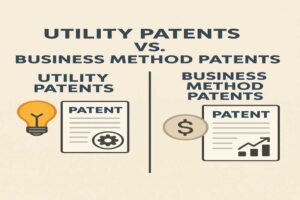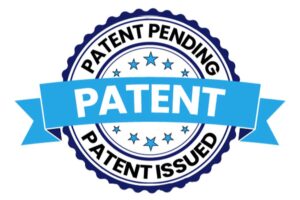Introduction
The “quiet period” is a fundamental concept under U.S. securities law that governs communications by companies, underwriters, and insiders during the process of an initial public offering (IPO). This period is intended to ensure a fair and level playing field for all investors by limiting the dissemination of information that could unduly influence investor decisions. This article delves into the legal basis, objectives, and implications of the quiet period, with references to key statutes, regulations, and case law.
1. Legal Framework: The Securities Act of 1933
The quiet period is primarily rooted in the Securities Act of 1933 (the “1933 Act”), which was enacted to protect investors and promote transparency in securities markets.
- Section 5 of the 1933 Act regulates the timing and manner of securities offerings, particularly for newly issued securities.
- The Act establishes three critical periods during an Initial Public Offering (“introduction en bourse“).
During these stages, specific rules govern what companies can and cannot say to prevent improper hype or solicitation.
Legal Citation: 15 U.S.C. § 77e (Section 5 of the Securities Act).
2. The Pre-Filing Quiet Period
The pre-filing period begins when a company decides to go public and ends when the company files its registration statement with the Securities and Exchange Commission (SEC).
- During this time, Section 5(c) prohibits any form of “gun-jumping,” meaning no offers to sell securities can be made, directly or indirectly.
- The SEC interprets this to include both explicit and implicit communications about the offering, including press releases, interviews, or other public statements.
Companies and insiders must refrain from making statements that could be construed as conditioning the market or generating undue interest in the stock. Violations of this prohibition can lead to regulatory enforcement actions and delays in the offering process.
Key Provision: Section 5(c): “It shall be unlawful for any person … to offer to sell … any security unless a registration statement has been filed.”
3. Exceptions to the Quiet Period
While the pre-filing period imposes strict limitations, there are certain exceptions that allow companies to continue normal business communications:
- Rule 135: Permits companies to make limited factual announcements about an upcoming offering. The information must be general and avoid promoting the securities.
- Ordinary Business Communications: Companies may continue issuing press releases, marketing materials, and public statements in the normal course of business, provided they do not reference the offering or condition the market.
- Emerging Growth Companies (EGCs): Under the JOBS Act of 2012, EGCs are allowed to engage in “test-the-waters” communications with qualified institutional buyers (QIBs) and institutional accredited investors before the registration statement is filed.
Legal Basis:
- Rule 135 under the Securities Act
- JOBS Act, 15 U.S.C. § 77b(a)(19) (definition of EGC)
4. The Waiting Period
After the company files its registration statement, the “waiting period” begins. During this time, oral offers are allowed, but written offers must comply with the SEC’s rules regarding the preliminary prospectus (Rule 430).
- Companies can now engage in roadshows, during which they present information about the offering to institutional investors.
- However, under Section 5(b)(1), any written material must be accompanied by a preliminary prospectus.
The SEC allows issuers to distribute information through media interviews or other outlets during this period, but the content must remain consistent with the information disclosed in the registration statement to avoid violations.
Legal Citation:
- Section 5(b)(1): Written offers must comply with prospectus requirements.
- Rule 430: Governs the use of preliminary prospectuses.
5. The Post-Effective Period
Once the SEC declares the registration statement effective, the post-effective period begins. During this time:
- Companies can freely sell securities, and all communications are subject to anti-fraud provisions under Rule 10b-5 of the Securities Exchange Act of 1934.
- While the quiet period formally ends, companies and underwriters often adhere to a 25-day period post-IPO during which they refrain from issuing research reports or other promotional statements to ensure investor confidence and market stability.
Legal Citation: 17 C.F.R. § 240.10b-5 (Anti-Fraud Rule).
6. Penalties for Violating the Quiet Period
Violations of the quiet period restrictions can lead to significant consequences, including:
- SEC Enforcement Actions: The SEC may impose fines, penalties, or other sanctions for gun-jumping or improper communications.
- Rescission Rights: Investors may have the right to rescind their purchases if they can prove that improper communications affected their investment decisions.
- Delayed Offerings: The SEC can delay the effective date of the registration statement, which can disrupt the IPO timeline.
Relevant Case Law:
- SEC v. Coca-Cola Co., 1994 (enforcement for improper promotional materials during the waiting period).
- SEC v. Universal Camera Corp., 1961 (gun-jumping enforcement).
7. Quiet Period for Analyst Research
In addition to issuer restrictions, the Global Settlement of 2003 imposed rules to separate investment banking and research analyst activities. Under FINRA Rule 2241, analysts are prohibited from publishing research reports or making public appearances during the quiet period surrounding an IPO:
- 40 days post-IPO for lead underwriters.
- 25 days for other participating underwriters
These restrictions aim to avoid conflicts of interest and ensure the integrity of analyst research.
Legal Basis: FINRA Rule 2241; SEC Release No. 34-48252 (Global Settlement).
Conclusion
The quiet period under U.S. securities law is a critical mechanism to protect investors and maintain market integrity during the IPO process. By imposing strict communication restrictions on companies, insiders, and underwriters, the law aims to prevent undue hype and ensure that investors make informed decisions based on accurate and transparent information.
While exceptions exist, compliance with the rules set forth under the Securities Act of 1933 and related regulations is essential to avoid regulatory scrutiny and legal penalties. Understanding the legal basis and practical implications of the quiet period is fundamental for companies preparing for an IPO and the professionals who guide them through the process.







